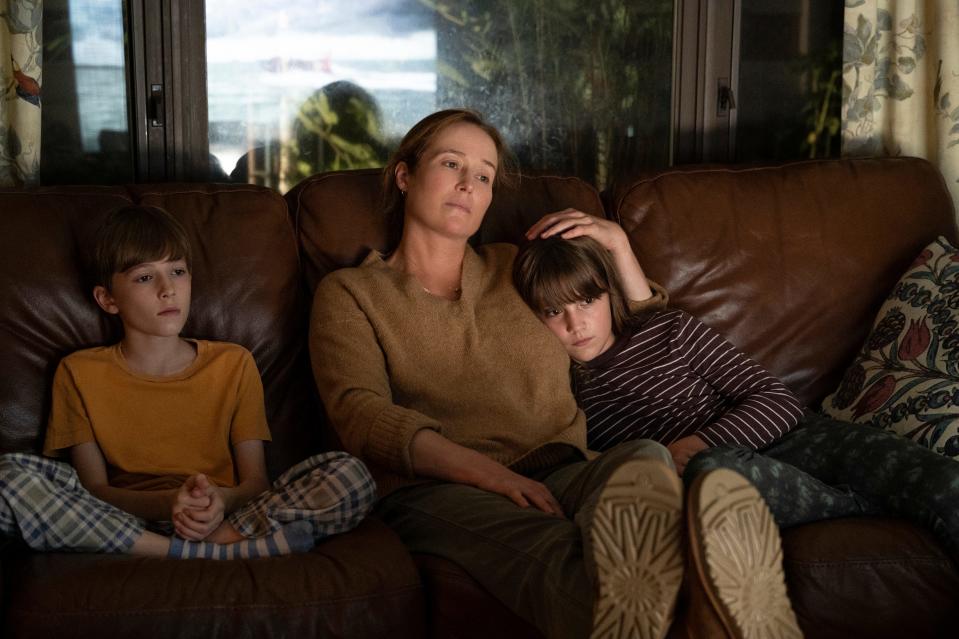Algorithms are creating a convenient excuse to sexualize a whole new generation of women
We’ve made strides from the days of Hollywood backrooms where powerful men took advantage of the hopes and dreams of aspiring actresses.
These days, there’s more accountability for abusers who look for the latest songbird to manipulate. Now it’s the nameless, faceless legions of social media followers who affirm to a generation of women that they’re little more than sexualized objects glittering for a moment and then gone.
As the father of three boys, I’m concerned that technology applied to age-old realities is gutting the generation of women who are my sons' friends, companions, and ultimately wives.
In the age of body positivity and sexual empowerment, the idea of modesty and sexual restraint seems old fashioned. When I was a teenager at Brentwood Academy in the late 1990s, I remember my female friends getting “smocked” for violating the dress code. If their skirts were too short, they were given the ugliest blue denim frock imaginable to wear for the remainder of the day. Boys also had a dress code, but I can’t even recall the penalties for violations. The smock left an impression.
Our cultural standards have undergone a radical realignment
Our present culture is an extreme response to generations of forced modesty without appropriate explanation. Even where the conservative norms at home, church, and school were well intended, many sent the message that women should be either shamed or ashamed for being attractive. I’ve known countless women wrongly led into believing that it was their responsibility to keep men from lustful thoughts.

Over the last decade or two, we’ve experienced the radical realignment of cultural standards. The #MeToo movement created accountability for powerful abusers in industries across the nation. From sex to relationships to body image, the cultural narrative repeated that there aren’t any real differences between men and women. Gender itself has been denounced as a dated cultural construct.
Then we moved on, swiped, and watched.
Algorithms seem less menacing than predators like Harvey Weinstein, but they are orders of magnitude more influential at shaping culture and behavior. When a creepy millionaire movie producer treats young women as sexual objects, we’re outraged. When a computer program does the exact same thing, we don’t bat an eye.
Skin is in, baby. It always has been. From catching catfish and rushing a sorority to commenting on college football and workout tips, a generation of young women is being taught that they do everything better in less clothing.
We men should have good sense to keep our hands to ourselves
It’s easy to rationalize. Social media companies spin the yarn that they’re “empowering” influencers by monetizing their content. That’s the same line that Hollywood abusers regularly deployed. If a woman is making money by revealing her body, bank on someone else behind the scenes making a whole lot more. We’re setting out on another culture of female exploitation because we’ve bought a better cover story.
No, women don’t owe me or any other man an obligation to dress modestly. It’s on me to behave appropriately in any context and teach my sons to do the same no matter what or whom comes into our field of vision.
As a man, I enjoy not wondering what role my attire played in my personal or professional accomplishments. Call me progressive, but women should have the exact same opportunity. I’ve never felt any pressure to sexualize myself, so readers will give my column a read. Again, my female colleagues shouldn’t feel any different. When I’m having an off day, nobody tells me it would be great if I smile more.
More: Is Tennessee really among states with most Instagram influencers? It's true, study says
We need to level the playing field on gender equality
The forced modesty of yesteryear doesn’t deserved to be revived, but our young women deserve so much more than the influences being peddled to them. I want my future daughters-in-law to know their worth and set standards much higher than the aesthetic approval of my sons.
Those young women should dream of the stars and have paths to reach them. If my sons can keep the pace, then they just might be deserving of their affections.
Let’s level the playing field. Create meaningful opportunities for women. Companies should sponsor examples of women succeeding in science, politics, or business. Highlight the mothers who keep our country moving with the thankless work of parenting.

We’re not short on positive examples to set out as role models. Give girls examples of the women they can become, not simply a primer on how to dress and dance to get the next like, click, or follow. Algorithms can’t be our convenient excuse to sexualize a whole new generation.
USA TODAY Network Tennessee Columnist Cameron Smith is a Memphis-born, Brentwood-raised recovering political attorney who worked for conservative Republicans. He and his wife Justine are raising three boys in Nolensville, Tennessee. Direct outrage or agreement to smith.david.cameron@gmail.com or @DCameronSmith on X, formerly know as Twitter. Agree or disagree? Send a letter to the editor to letters@tennessean.com.
This article originally appeared on Nashville Tennessean: Gender equality: Women deserve more than to be sexualized by algorithm

